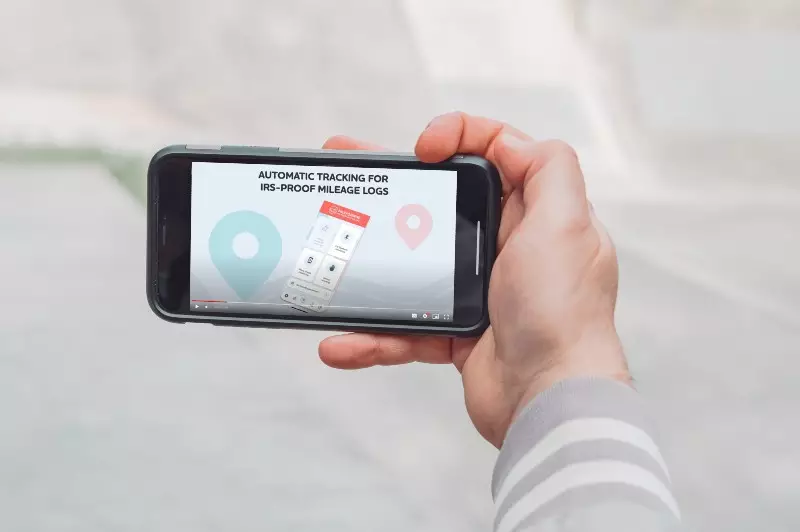
Navigating the maze of tax preparation can be daunting, especially when it involves keeping track of your mileage. Fortunately, technology has streamlined this process, making it less of a chore and more of an efficient, almost effortless task. Key to this transformation is the advent of mileage tracking apps. These apps are designed to automatically record your travels, ensuring that every business-related mile is accounted for. This is crucial, as every mile translates to deductions that can significantly lower your tax bill.
Understanding Mileage Deductions
Before diving into the mechanics of automatic mileage logging, it’s important to grasp the concept of mileage deductions. The IRS allows you to deduct miles driven for business, medical, charitable, or certain moving purposes. The rate per mile varies, with business miles typically offering the highest deduction. Knowing this is vital because it translates to tangible financial benefits come tax time.

The Role of Mileage Tracking Apps
Mileage tracking app is at the forefront of simplifying tax-related mileage logging. These apps use your smartphone’s GPS to track your movement, discerning between personal and business travels. With features like automatic trip detection, classification, and comprehensive reporting, they are indispensable tools for anyone seeking to maximize their mileage deductions.
Setting Up Your Mileage Tracking App
Getting started with a mileage tracking app is straightforward. First, choose an app that suits your needs. Consider factors like user interface, accuracy, battery consumption, and extra features. Once downloaded, setting up involves creating an account and allowing the app necessary permissions, such as location access. Some apps also offer additional customization like setting work hours for automatic trip recording.
Automatic vs Manual Trip Logging
The beauty of these apps lies in their ability to log trips automatically. This means the app runs in the background and records all your drives. However, you can also log trips manually if needed. This is especially useful if you forget your phone or if the automatic tracking fails. The key is to ensure that every business-related trip is recorded, one way or another.

Categorizing Trips for Accurate Records
After logging your trips, the next step is categorization. This involves marking each trip as business or personal. Most apps allow you to do this with a simple swipe. Accurate categorization is critical, as only business miles are deductible. Some apps also offer features like adding notes or tags to trips for better organization.
Generating Reports for Tax Preparation
One of the most useful features of mileage tracking apps is report generation. These apps can compile your trips into comprehensive reports, often allowing you to customize the date range and type of trips included. These reports can then be used for tax preparation, providing a clear, IRS-compliant record of your business mileage.
Integrating with Accounting Software
For added convenience, some mileage tracking apps offer integration with accounting software. This means your mileage data can be directly imported into your accounting records, streamlining the tax preparation process even further. This integration is particularly beneficial for businesses and individuals who use accounting software for their financial management.

Regular App Maintenance for Optimal Performance
To ensure your mileage tracking app continues to function effectively, regular maintenance is key. This includes updating the app to the latest version, regularly reviewing your trip logs for accuracy, and checking the app settings. Sometimes, GPS accuracy can be affected by factors like device settings or environmental conditions. Periodically checking the app ensures that it remains a reliable tool for your tax preparation needs.
Understanding Tax Laws and Mileage Deductions
A crucial aspect of logging your miles for taxes is staying informed about tax laws. Tax laws, especially concerning deductions, can change annually. It’s vital to be aware of the current mileage rates and what qualifies as a deductible business trip. This knowledge not only ensures compliance with IRS regulations but also helps you maximize your deductions.
Balancing Privacy and Tracking Needs
While mileage tracking apps are incredibly useful, they also raise privacy concerns, as they track your movements. It’s important to choose an app that respects your privacy and clearly states its data handling policies. Furthermore, understanding the app’s privacy settings can help you maintain a balance between efficient tracking and personal privacy.

Customizing the App for Your Specific Needs
No two users’ needs are exactly the same, and mileage tracking apps often offer various customization options to cater to individual requirements. Whether it’s setting up specific business hours, adding custom trip categories, or setting up automatic trip detection sensitivity, taking the time to customize your app can greatly enhance its effectiveness and ease of use.
Leveraging App Features for Maximum Deductions
To make the most of your mileage tracking app, it’s essential to leverage all its features. This includes using its categorization capabilities, making use of tags and notes for specific trips, and understanding how to interpret the data it provides. The more proficient you become with your app, the more you can ensure that no deductible mile goes unlogged.
Periodic Reviews and Data Verification
Regularly reviewing your mileage records is a good practice. This not only helps in ensuring accuracy but also gives you an insight into your travel patterns, which can be beneficial for optimizing your trips for better efficiency and higher deductions.

Preparing for Audits with Detailed Records
In the event of an IRS audit, having detailed and well-organized mileage records can be invaluable. Ensure that your app’s reports are detailed, with dates, miles, and purposes of trips clearly stated. Keeping these records safe and easily accessible can make a significant difference in an audit situation.
Educating Yourself Continuously
Finally, staying educated about the best practices in mileage tracking and being aware of new features or updates in your chosen app is crucial. The world of tax deductions and technology is ever-evolving, and staying informed is the best way to ensure you’re maximizing your deductions and using the app to its full potential.
End note
In conclusion, automatically logging your miles for tax purposes using a mileage tracking app is a smart and efficient way to manage your tax deductions. By understanding how these apps work, leveraging their features to the fullest, and staying informed about tax laws and app updates, you can simplify your tax preparation process and ensure you’re getting the maximum benefit from your business travels.





